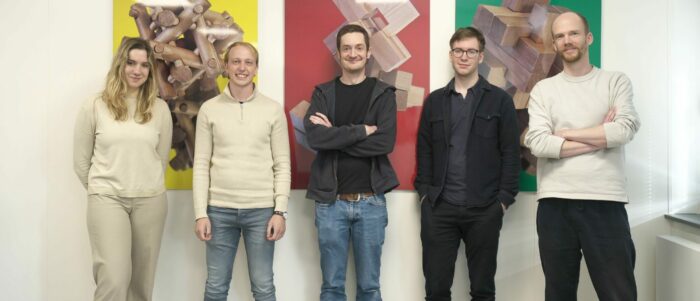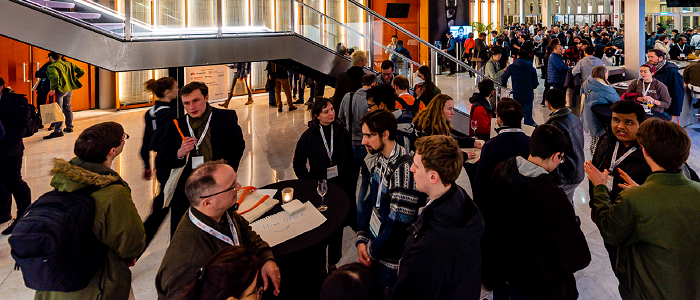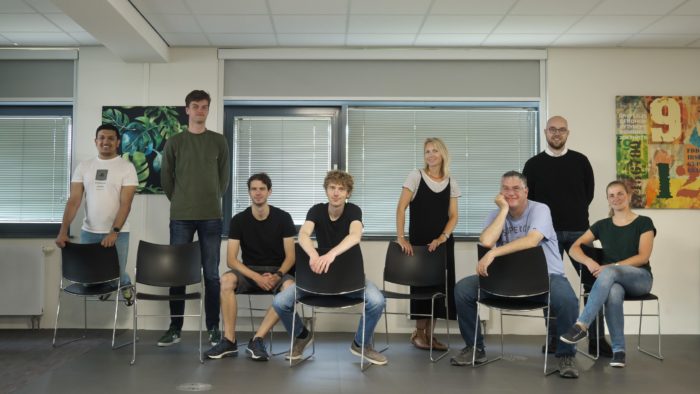
VORtech Blog

2023-11-21
News about the team
VORtech has been growing relatively quickly in recent years. While we have hired an average of one additional employee per year, we have hired five new colleagues in the past year. Read more about our new toppers Martine, Sander, Mat, Hunter and Edo (from left to right in the photo) in our blog.
Read more

2023-11-09
Six rules for co-development
These days, technology is becoming so complex that many systems are built in a partnership of specialized companies. This has the obvious benefit of using the best possible knowledge and experience, but it also has pitfalls. Here are six rules, illustrated with our experiences in a recent project.
Read more

2023-10-20
How will machine learning change computing and simulation?
The launch of ChatGPT made the world aware that Machine Learning will fundamentally change the way we live and work. The field of computing and simulation will be no exception. But it’s not just ChatGPT: there are other innovations from machine learning that are bringing exciting changes for computing. In this blog, we’ll explore the potential of this new technology.
Read more

2023-06-13
Virtual brains
Bas van ’t Hof from VORtech helped brain researchers by building software to compute how drugs spread through the brain. With this software, the researchers can now see what their theoretical work implies, allowing for more efficient drug development with fewer laboratory animals.
Read more

2023-05-03
Winners of the Pi-day challenge 2023
The Pi-dag challenge 2023 has three very convincing winners. It was clearly a nice challenge for software engineers with a knack for mathematics. There were some very interesting and surprising solutions. Some made creative use of loopholes in the rules, but all displayed true coding skill.
Read more

2023-04-14
4 takeaways from the 2023 SIAM conference on Computational Science and Engineering
The 2023 edition in Amsterdam offered a showcase of everything that is going on in the field, from software management, digital twins, and machine learning to impressive applications.
Read more

2023-03-13
The Pi-day challenge 2023
For all scientific programmers out there that enjoy a solid challenge: submit your Python solution for the Pi-day challenge 2023 on April 20 at the latest.
Read more

2022-09-06
Automating a simulation workflow
In many companies, the workflow around simulations is a highly manual and error-prone process. Automating a simulation workflow saves time and effort. Moreover, it makes the process far more reliable, and it opens new possibilities.
Read more

2022-09-06
Experiments with simple model-order reduction methods
Model-order reduction is a powerful technique to speed up simulations. It can be used to solve performance issues in applications like design optimization, model-based predictive control, or digital twinning. In this blog, we’ll give a very basic introduction to these techniques and describe some experiments that were done at VORtech by two interns at VORtech, Floris Roodenburg and Abinash Mishra. They could speed up calculations by more than a factor of ten.
Read more

2022-09-06
Team news
There have been many positive developments on the personnel front in the past year. For example, we have welcomed a host of new colleagues and some senior employees are preparing to become partners. We celebrate a series of working jubileesies. We said goodbye to a few colleagues, but that is a natural process in a larger team. Because many of our relations have a personal connection with our colleagues, we thought it good to give an overview of the developments.
Read more